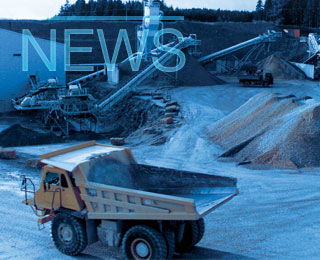India’s finance minister yesterday singled out cement producers for failing to support efforts to contain "politically unacceptable" levels of inflation that threaten to destabilise the country’s fast-growing economy.
Annual inflation has climbed from 4 per cent last year to 6.5 per cent, with prices for politically sensitive foodstuffs, such as onions, rising faster. The rise has forced the central bank to increase interest rates, sparking worries -in the co-alition government ahead of state elections.
Speaking in Hong Kong ,P Chidambaram said that cement price inflation was running at 16 per cent but, unlike steelmakers, the cement industry appeared unwilling to help the nation to "avoid core inflation becoming entrenched".
"Cement rises have been a cause for co-ncern," he said. "All we are saying is: ’moderate prices a bit.’"
Mr Chidambaram’s last budget contained a tax break for cement companies that charge lower prices, to come into operation in April, in effect raising excise duties on the product. The industry has so far refused to cut prices. Inflation has shot up the political agenda: prime minister Manmohan Singhrecently convened a meeting of his econ-omic advisory council to address the "key macroeconomic challenge" of rising inflation.
However, analysts said it was unusual for a senior government figure so publicly to berate an industry in front of international investors, many of whom hold shares in India’s leading ce-ment companies. Mr Chida-mbaram was speaking at Credit Suisse’s annual Asian investor conference. He told delegates that economic growth was likely to remain at 9 per cent of more for "the next five to 10 years".
However, he warned that "growth rates of 9 per cent and inflation of 6.5 per cent were politically unaccept-able". But he said he was confident that inflation would ease over the coming weeks, as near-normal monsoon rain would help increase the supply of crops such as sugar.
Mr Chidambaram called on foreign investors to help India transform its ageing infrastructure, which he said required Dollars 320bn (Pounds 160bn, Euros 240bn) in expenditure over the next five years. He said: "I will find Dollars 200bn of my own from the country’s savings but still require Dollars 120bn from overseas for investment in airports, roads, telecoms and power stations."
Mr Chidambaram denied suggestions that India’s economy suffered because of fo-reign investment limits in key sectors. Foreign investors are restricted from fully acquiring companies in sectors including civil aviation, banking, telecoms and insurance. "Some of these barriers will be removed but that will depend on the political process. I can give a long list of businesses where there are no caps at all," he said.
